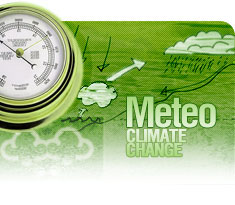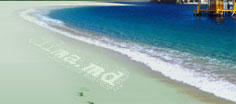https://www.theguardian.com/us-news/2021/jul/03/pacific-northwest-heat-dome-climate-change
Left-leaning states had focused on how global heating would affect others. Then the 'heat dome' arrived
The record heatwave in the Pacific north-west is forcing a reckoning on the climate crisis, as many living in the typically mild region consider what rising temperatures mean for the future.
A "heat dome" without parallel trapped hot air over much of the states of Oregon and Washington in the United States, and southern British Columbia in Canada, in past days, shattering weather records in the usually temperate region.
Temperatures in tiny Lytton, British Columbia, hit 49.6C (121.3F) and set a Canadian all-time record, days before a wildfire tore through the town. Roads buckled under the heat in Washington and Oregon. Heat and heavy air conditioner use knocked out power for tens of thousands. The dead, thought to number in the hundreds, are not yet counted.
In Washington and Oregon, largely liberal, climate-conscious states, efforts to combat global heating have long been popular. The Washington governor, Jay Inslee, put himself forward as the "climate candidate" during the 2020 Democratic presidential primary. He argued residents of the region would, in the absence of federal leadership, "do our part to address a global problem". Climate conversations have generally centered on what north-westerners could do to protect the planet or other people in places at greater risk of extreme heat. But after three days of temperatures near or above 100F (38C) in Seattle - a city where residents often describe the sixth month as "June-uary", as temperatures rarely reach 80F (27C) - they're increasingly concerned about themselves.
"It felt like we'd set our Earth on fire," said Summer Stinson, a 49-year-old Seattle non-profit executive.
"There was a naivety that this wouldn't affect us in the north-west," Stinson continued.
Having lived in Las Vegas, Stinson knew how to deal with the heat. She covered south-facing windows in her craftsman-style home with aluminum foil, kept the appliances off, and hunkered down with her teenage son and black labrador retriever, Rico. It was oppressive, evocative of the wildfire smoke that's kept west coast residents trapped inside during recent summers. Stinson binged the first season of Buffy the Vampire Slayer and worried for her city.
While city workers turned on some water fountains and spray parks, many wading pools remained closed because of a national chlorine shortage. Like most prosperous American cities, Seattle has hundreds of people living in tents and shanties in public parks and vacant spaces; in Stinson's view, city leaders should have opened more cooling centers and ensured that they stayed open through the hot nights.
In the emergency department of Seattle's Harborview medical center, the region's premier trauma hospital, Dr Jeremy Hess found the scene he expected on Sunday night - dozens of people with heat-related ailments. By Monday evening, as the temperatures peaked, the scene was unusually intense.
Ambulance teams were run ragged, transporting critically ill patients who'd been intubated in the field. One area hospital was low on ventilators, while equipment at others was breaking in the heat. Hospitals were nearly overwhelmed.
"We really hadn't had activity like that since the beginning of the Covid outbreak here," said Hess, who also directs the Center for Health and the Global Environment at the University of Washington. "We were on the edge."
Having contributed to UN climate work, Hess knew both the dangers posed both by extreme heat and the lack of preparation in most communities, including his own.
There had been a sense, Hess said, that the north-west would be spared the worst harms presented by a warming world. There's truth to the sentiment inasmuch as the region, with its affluence, abundant resources and usually mellow weather, is better positioned than much of the world for a hotter, more erratic climate. The deadly heatwave came as a surprise.
"People have recognized that this might happen in theory, but I don't think they expected it to happen," he said. "They certainly didn't expect it to happen now, and they didn't expect it to be this bad."
As of Thursday, officials in Washington had attributed 20 deaths to the heatwave, 13 of them in King county, which includes Seattle. Oregon had recorded 79 deaths attributable to the heat, the state's medical examiner said, and officials in British Columbia said they had recorded hundreds more "sudden and unexpected" deaths, though they cautioned it was too soon to determine how many were heat-related. All of those numbers are expected to rise in coming days.
Directly to blame for the tragedy was a towering ridge of high-pressure air that cut off the flow of cool, wet wind from the Pacific Ocean, the Washington state climatologist, Nick Bond, said. The ridge - dubbed a "heat dome" - also warmed the air by compressing it and funneled hot, dry air east from the arid side of the Cascade Mountains.
Bond described the phenomenon as "unprecedented". Crucially from a health perspective, it held nighttime temperatures up, prolonging heat-related stress on residents.
Was climate breakdown to blame? Bond was equivocal. Normal daytime temperatures in the region have risen about 2C degrees, while normal nighttime temps are up about 3C degrees. It stood to reason, Bond said, that the heatwave would have been less severe if the climate were generally cooler.
More instructive, in Bond's view, is the fragility revealed by the extreme heat.
"There's no question the climate is warming and this shows what can happen," he said. "We didn't like it, so let's do something about it."
When Michaela Eaves and her colleagues heard the extreme heat was on the way they was put up tents - big ones with air conditioning - and filled them with animals.
Eaves is a volunteer with Washington State Animal Response Team. She and other volunteers spent the scorching weekend cooling dogs, cats and other pets housed inside military surplus tents set up south-east of Seattle.
Dogs stayed in their own tent, while cats, kept company by a flock of chickens and a rabbit, stayed in a darkened enclosure. The shelter hit its maximum capacity of 40 animals each day, before it closed on Tuesday.
Dodging the heat wasn't an option for Cody Spencer, 32, or his wife. Together, they run a pair of video game stores in Seattle - Pink Gorilla Games - catering to tech workers interested in spending some of their disposable income on vintage Nintendo systems. While one of the couple's stores has air conditioning, the other, located in Seattle's historic International District, does not.
"It's a really old building, super, super old. And so is the landlord, and he wasn't helping at all," Spencer said.
Customers kept coming, so Spencer sweated out the hottest days in Seattle's history. Home was no better. Though he lives in a "kinda spend-y" apartment, Spencer, like most Seattleites, doesn't have air conditioning.
Of course, air conditioning is a poor response to a warming world. Washington state lawmakers have taken more substantial action on climate change, and recently created a cap-and-trade system similar to California's as well as new rules meant to constrain transportation pollution.
On Thursday, the Washington state senator Rebecca Saldaña, whose support proved crucial to passage of the cap-and-trade plan earlier in the year, said the heatwave demonstrated the need for climate action, particularly for people already living with pollution. Saldaña believes a new racially aware anti-pollution effort in Washington may prove consequential.
"There is a way forward," said Saldaña, a progressive Democrat representing a racially and economically diverse Seattle district. "I don't think the will is there yet, but I am hopeful that these moments of crisis, these moments where our communities are being tested, will light a fire to do something."



 Română
Română English
English


